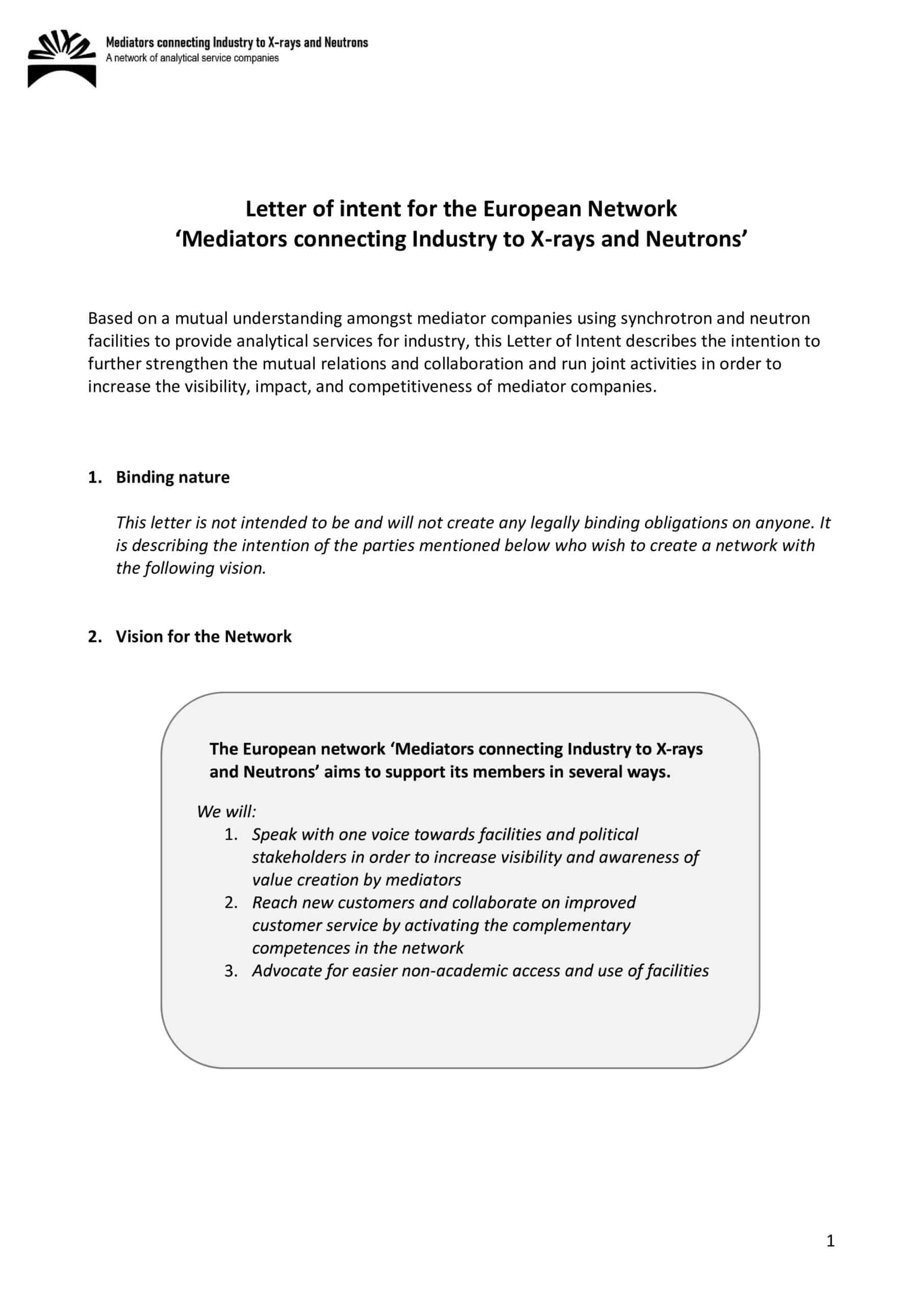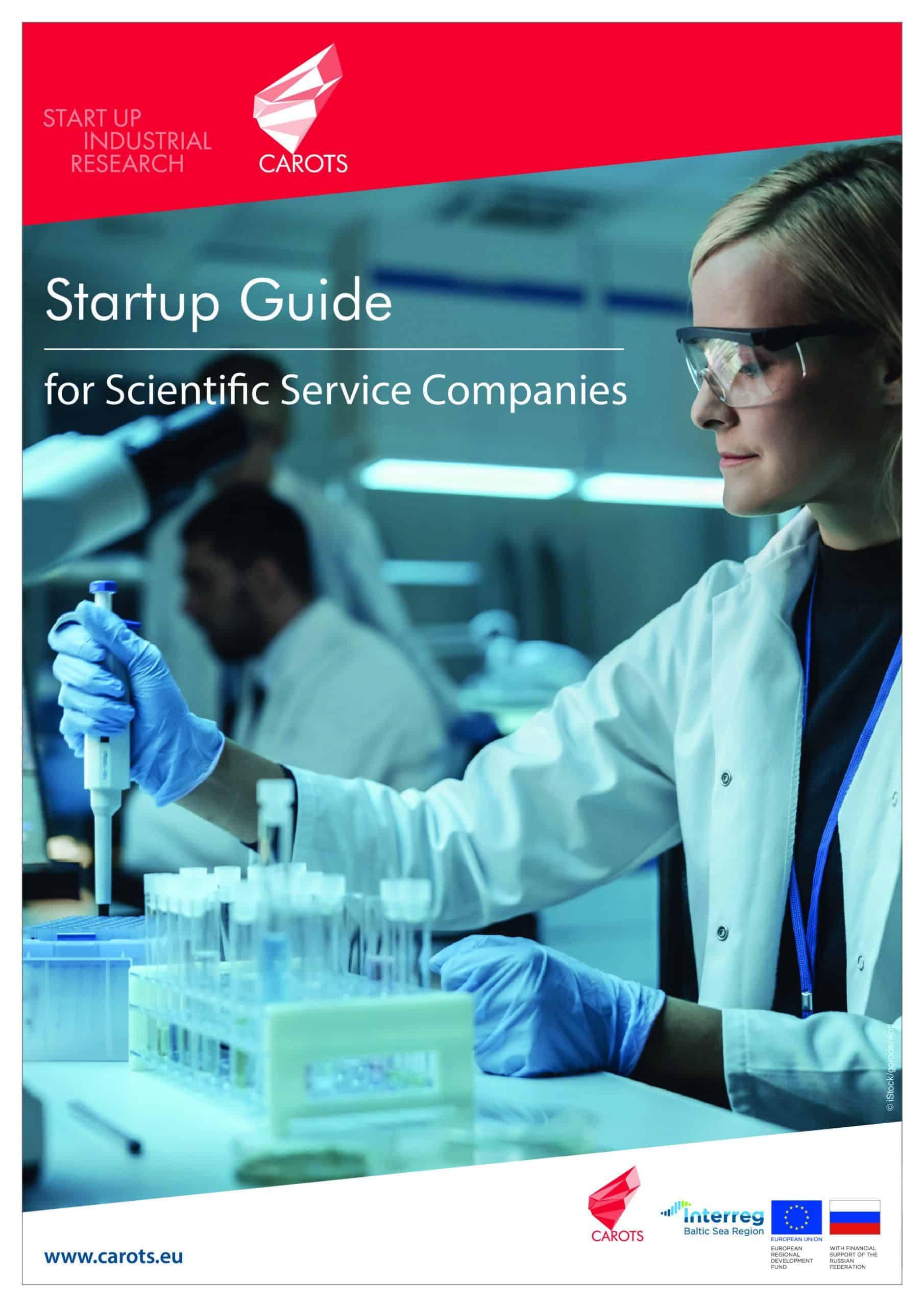CAROTS
Connecting industry with research
There is a gap between basic scientific research and industrial application of research results in new products and technologies. To bridge this gap, some public and private initiatives were undertaken to deliver measurement services for industrial clients. Especially small and medium-sized enterprises (SME) need a comprehensive package solution, specifically starting with consultation in order to define the required research goals and methods, followed by developing concepts for experiments, the actual measurement and concluding with an interpretation of the results. Thus, intermediaries acting as "translators" between industry and academia, would help to align research and industry. Commercial Analytical Research Organisations (CAROs) or Scientific Service Companies (SSCs) could be translators and educators of methods, results, and data by interpreting scientific insights for industrial customers. SSCs have access toor the potential to use Large Scale Research Infrastructures and/or offer lab technologies. SSCs will help companies to benefit from knowledge and potential of scientists and research facilities and provide companies with much quicker yet complete assistance to solve analytical tasks in areas like e.g. new materials/material sciences (including engineering), NanoTech or Life Sciences/BioTech.
Initiating a new market
Although a few SSCs already exist in Europe, there is a high potential for additional enterprises of this type. Therefore, CAROTS aimed to establish this new type of company in the Baltic Sea region. The goal was to initiate a test bed for this new type of intermediaries between industry and Analytical Research Organisations. CAROTS aimed to involve private capital – by investing in SSCs – in the collaboration between industries and publicly owned analytical facilities. CAROTS wanted to improve conditions for this type of industrial research startups along with greater visibility, better knowledge transfer and attracting entrepreneurs and venture capitalists for support.
Budgets
in numbers
-
2.10MillionTotal
-
1.51MillionErdf
-
0.12MillionEni + Russia
-
0.00MillionNorway
Achievements
For the first time, the CAROTS project (CAROTS stands for Commercial Analytical Research Organisations Transnational Strategy) tested a new business model, market and bottlenecks for the development of Scientific Service Companies (SSCs). SSCs are intermediary companies facilitating access of enterprises to advanced research infrastructures and to scientific expertise needed to solve analytical tasks in areas like e.g. new materials, NanoTech, or Life Sciences. As enterprises, especially small and medium-sized enterprises (SMEs), find it complicated and costly to access advanced research facilities and get an overview of the available research tools and methods, SSCs as intermediaries would facilitate contacts between companies and research representatives and facilitate solutions. Thus, SSCs made more effective use of existing research capacities at research infrastructures and other research institutions.
The MIXN network established
The project managed to increase the previously low visibility of SSCs and initiated the European MIXN (Mediators connecting Industry to X-rays and Neutrons) network. The network, established in 2020, will continue its operation representing SSCs’ interests after the project’s end. The aim of the network was to raise awareness about the importance of intermediaries, to reach new clients and to lobby for easier non-academic access and use of analytical research facilities.
The CAROTS Startup School
The CAROTS project established the Startup School and welcomed scientists and engineers working as researchers at universities or research institutions. The programme at the School contained coaching sessions (coaching from specialists that established SSC before) and webinars. As a result, by launching the School for those who want to set up a scientific service company (SSC) based on an advanced analytical technique, the project increased the number of SSCs in Europe as a first step. Out of eleven scientists, two have founded new companies and one entrepreneur has expanded his offer to include scientific services. The Startup School will be continued in the future with the support of the Research Infrastructures and the MIXN network.
Outputs
Letter of Intent for Scientific Service Companies to join the MIXN network

Startup guide for Scientific Service Companies

Project Stories
Partners
Deutsches Elektronen-Synchrotron DESY
- TownHamburg
- RegionHamburg
- CountryGermany
- RepresentativeUwe Sassenberg
- Phone
- E-Mail
- Web
Helmholtz-Zentrum hereon GmbH
- TownGeesthacht
- RegionHerzogtum Lauenburg
- CountryGermany
- RepresentativeMarc Thiry
- Phone
- E-Mail
- Web
University of Turku
- TownTurku
- RegionVarsinais-Suomi
- CountryFinland
- RepresentativeSari Stenvall-Virtanen
- Phone
- E-Mail
- Web
Foundation of Innovative Initiatives
- TownKrakow
- RegionMiasto Kraków
- CountryPoland
- RepresentativePiotr Piwowarczyk
- Phone
- E-Mail
- Web
Saint Petersburg State University of Economics
- TownSaint Petersburg
- RegionCity of St. Petersburg
- Country
- RepresentativeAleksei Iurin
- Phone
- E-Mail
- Web
Lithuanian Innovation Centre
- TownVilnius
- RegionVilniaus apskritis
- CountryLithuania
- RepresentativeIngrida Tinfaviciene
- Phone
- E-Mail
- Web
University of Tartu
- TownTartu
- RegionLõuna-Eesti
- CountryEstonia
- RepresentativeMarco Kirm
- Phone
- E-Mail
- Web
Investment and Development Agency of Latvia
- TownRīga
- RegionRīga
- CountryLatvia
- RepresentativeLauma Muizniece
- Phone
- E-Mail
- Web
The Capital Region of Denmark
- TownHillerød
- RegionKøbenhavns omegn
- CountryDenmark
- RepresentativeJakob Øster
- Phone
- E-Mail
- Web
WITHDRAWAL (30.06.2020) Danish Technological Institute
- TownAarhus C
- RegionØstjylland
- CountryDenmark
- RepresentativeNikolaj Zangenberg
- Phone
- E-Mail
- Web
-
Project managerUwe SassenbergInnovation & Technology Transfer ITT DESY
-
Legal representativeHelmut DoschDeutsches Elektronen-Synchrotron DESY
-
Financial managerKatja PollowTop Level Consult
-
Communication managerCaroline OxleyIndustrial Liaison Office German Engineering Materials Science Centre (GEMS) Helmholtz-Zentrum Geesthacht (HZG)



